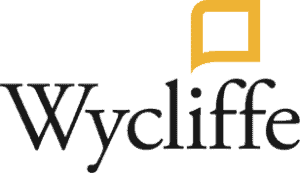Two fathers from very different backgrounds train to become translation consultants
“Tweeeeet!! The referee’s whistle can barely be heard amidst the cheers of the crowd at AIDIA’s Shalom school in Abancay. It’s the night of the annual parent-teacher volleyball tournament, and in volleyball-mad Peru, it’s a big deal.
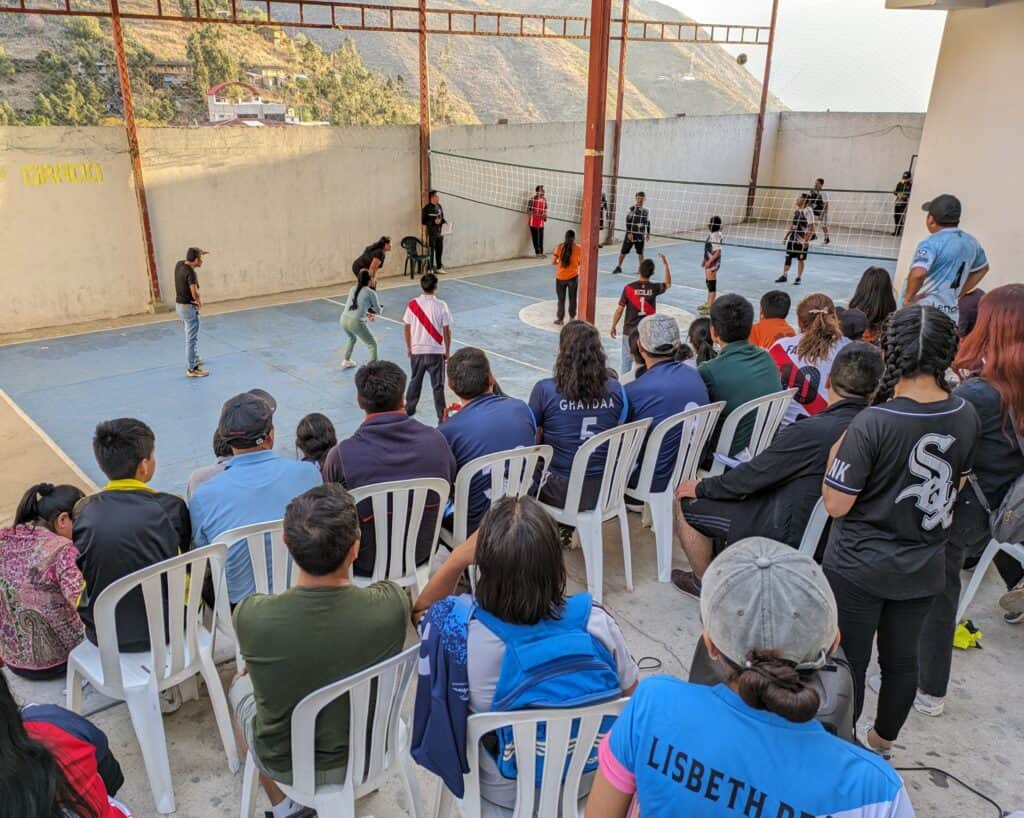
Limbering up courtside, two dads await their turn to play. Óscar Sánchez is psyched for the competition—his kids have attended Shalom for years, and for him, this tournament is a bright spot on the school calendar. Nick Darrell, on the other hand, mostly wants to avoid embarrassing his kids and rupturing any tendons. Since he and his family moved to Abancay from New York City six months ago, everything feels new, and the expectation that parents defend their family honour on the volleyball court is just one more item on the list.
It’s a lighthearted snapshot of two men who find themselves playing on the same court, but it mirrors a more significant parallel journey in Óscar and Nick’s lives: that of training to become Bible translation consultants.
Óscar’s story
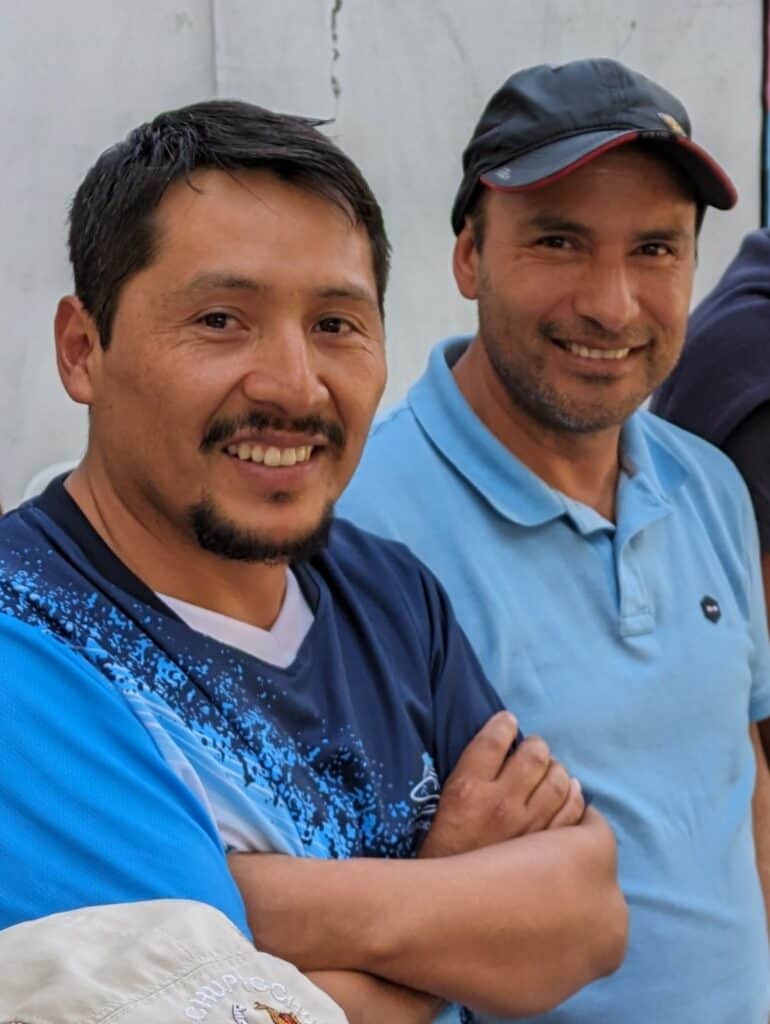
Óscar grew up in Apurímac province, surrounded by soaring mountains and plunging canyons. Of Quechua descent, he knows well the challenges faced by minority language communities in Peru and how much they need the gospel. When he was a university student, he began travelling with Luis Cervantes to Apurímac’s mountain communities to help in any way he could, often for a month at a time. He later became the first full-time translator with the Eastern Apurímac Bible translation, spending 14 years on the project while simultaneously pastoring a Quechua congregation. The road has been long and arduous, but it’s given Óscar a depth of insight and field experience that will be invaluable in his role as a consultant.
At the same time that Óscar is completing his own consultant training, he’s also mentoring Nick on his respective consultant journey through a Wycliffe USA program called Convergence. Designed in response to the overwhelming need worldwide for more translation consultants, it compresses the time that training typically consumes by capitalizing on skill sets that students already have. It also emphasizes the importance of partnerships with national translation organizations like AIDIA.
“He has become very skillful in translation, and now he can use those skills to help other translators,” says Luis.
Nick’s journey
Nick was surprised to learn that he was a good fit for Convergence—at first, there didn’t seem to be an obvious connection with his work as a biblical counsellor. He and his wife, Sandi, were living with their two children amidst the skyscrapers of New York City, their apartment just steps from Brooklyn Bridge. They had both felt drawn to Bible translation for some time, but weren’t sure where or how their skills could be used. Nick’s graduate work in theology and his fluency in Spanish seemed like clear assets, but they discovered it was his ability to listen—honed through his work as a counsellor—that made him stand out as an excellent candidate for translation consulting.
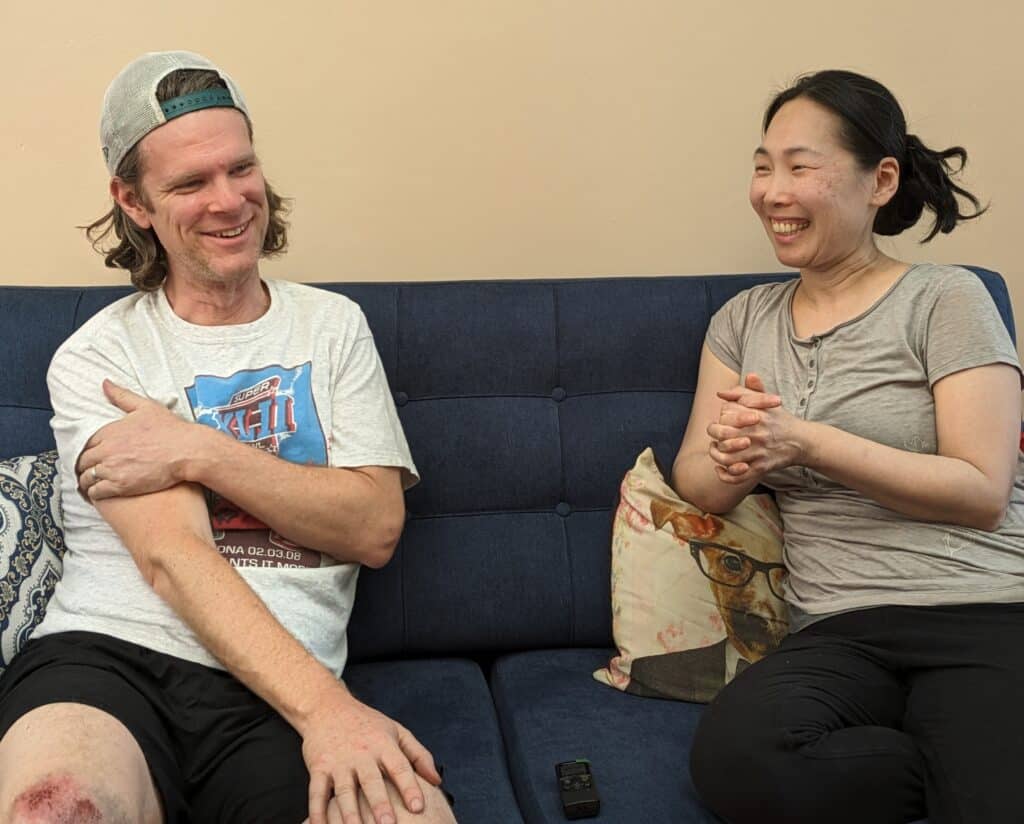
“The feedback he’s gotten is that he’s so humble,” says Sandi. “You need to posture yourself to be a good learner who’s willing to receive information.”
“It’s funny, though,” laughs Nick, “when people say ‘You’re really humble,’ I’m like, I think I’m just clueless!”
His willingness to laugh at himself—whether on the court or off—is a sign of his openness to learn and receive wisdom from others. It’s an openness that also characterizes his mentor, Óscar, who is currently adding to his translation skills by studying languages and theology.
“I want to improve my Greek and Hebrew so that I can help these other consultants that I’m training to better understand what they’re doing,” says Óscar.
What the future holds
Óscar completed his training and became a certified translation consultant shortly after this interview took place. He continues working with AIDIA as a consultant for its multiple Bible translation projects, as well as mentoring consultant trainees. Nick hopes to finish his training by the end of 2025; part of that time will be spent with AIDIA, but it’s not clear yet where he will be based when he’s finished. Though their paths may lead to different destinations, together the Peruvian and the American are a hopeful sign for the future of translation consulting.
As the sun sinks behind the mountains, fluorescent bulbs flood the volleyball court with light. Speakers blast Spanish pop music, accentuated by the noise of recorders that several students have managed to borrow from their music class. The crowd roars its approval as the score climbs. Óscar is eager to get back on the court, while Nick and Sandi are seizing the opportunity to connect with other parents. It’s another informal training session on the unique journey of these two translation consultants. ∎
A family affair
While their parents play volleyball, Alex* and Lucy* Darrell are running around Shalom’s courtyard with their classmates. The only expat children at the school, they go by “Alejandro”* and “Lucía”* to better fit into the Spanish-speaking environment. The Darrells’ choice to fully immerse themselves in the local community—school, church, and all—has been challenging at times, but their previous life in the United States has proven to be an apt training ground: Alex and Lucy studied Spanish at school in New York, and are comfortable being surrounded by people from different cultures. Walking is still their typical mode of transportation, and their apartment in Abancay is spacious compared to where they lived in New York. “God, in His amazing plan, prepared us in some pretty unique and special ways,” says Sandi.
*names changed to protect children’s privacy
(Photo: The Darrell family poses for a photo before leaving for a family soccer tournament the following day.)
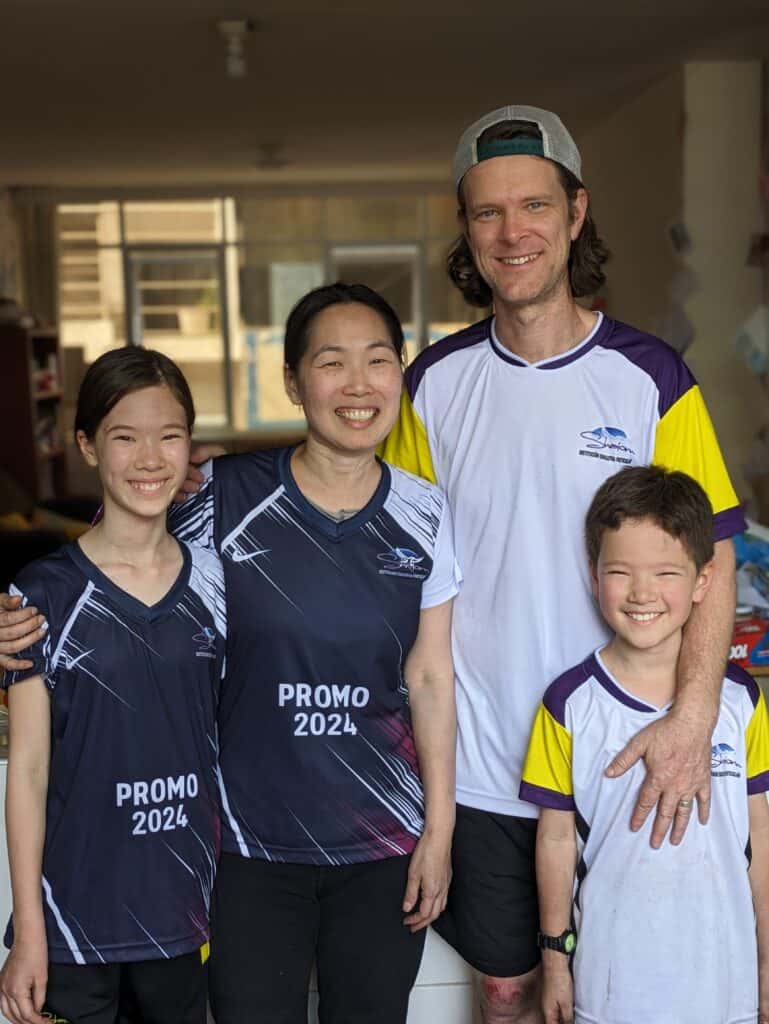
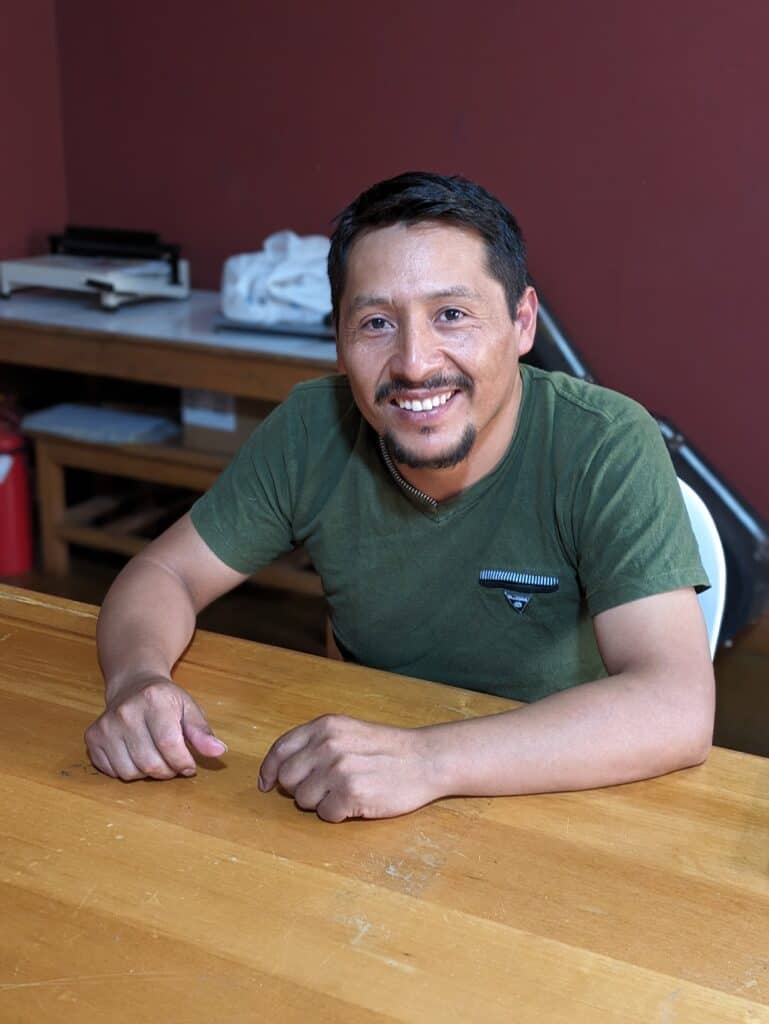
The consultant shortage
The Bible translation movement is suffering from a significant shortage of translation consultants. These highly-trained specialists are essential to the work of Bible translation—they’re responsible for checking translated passages to ensure they’re linguistically and theologically accurate before they are printed and distributed to language communities. They also help train and equip teams for the work of translation. It requires a skill set that’s both deep and wide, and not easily acquired, with many consultants first spending years working as translators and often completing advanced degrees in theology.
(Photo: Despite the challenges, Óscar‘s joy in his work shines through.)

